‘Fear will not fill our bellies’: Why Indian waste collectors are risking their lives on coronavirus debris
Sifting with bare hands, hundreds of scavengers including children expose themselves to a disease that has infected more than 17 million people
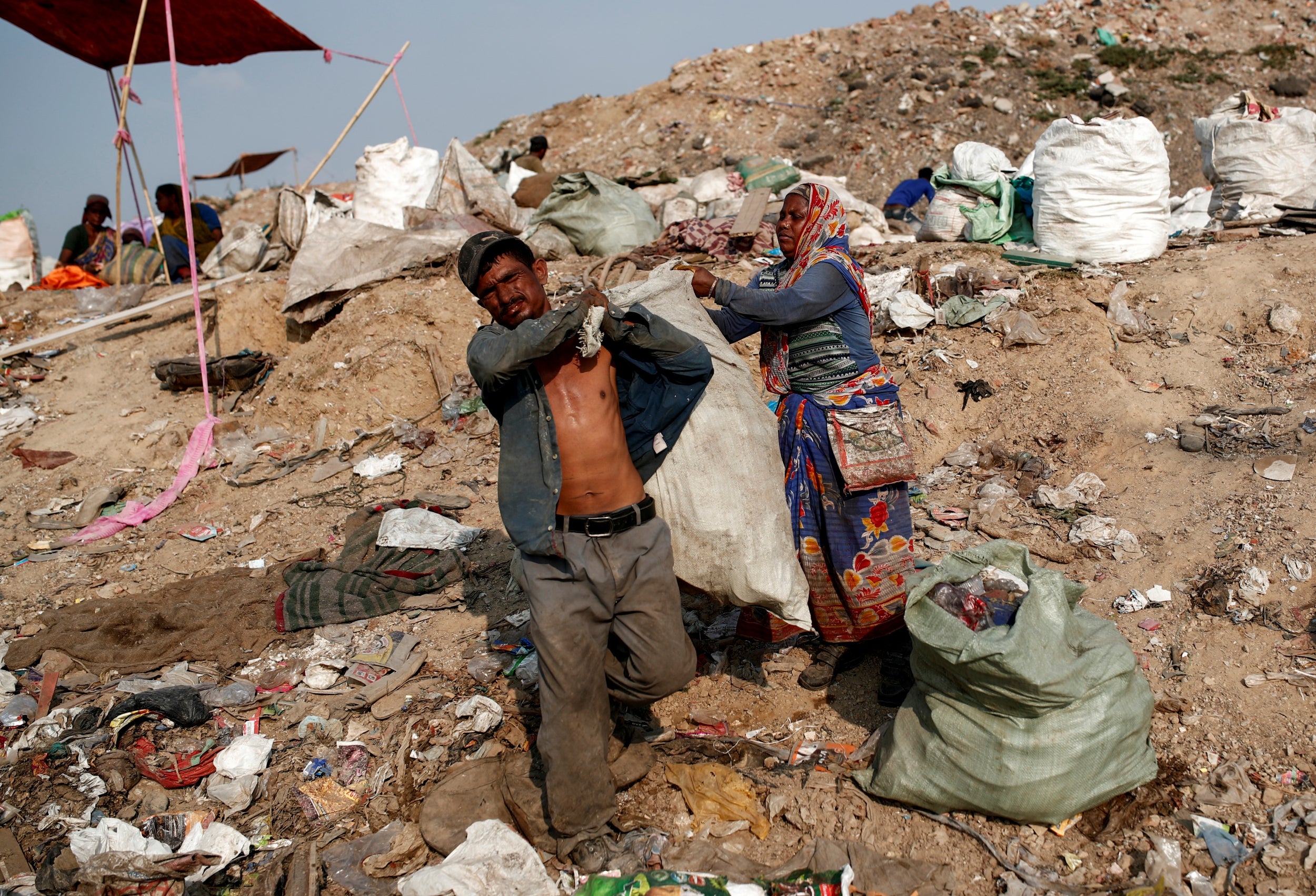
Your support helps us to tell the story
From reproductive rights to climate change to Big Tech, The Independent is on the ground when the story is developing. Whether it's investigating the financials of Elon Musk's pro-Trump PAC or producing our latest documentary, 'The A Word', which shines a light on the American women fighting for reproductive rights, we know how important it is to parse out the facts from the messaging.
At such a critical moment in US history, we need reporters on the ground. Your donation allows us to keep sending journalists to speak to both sides of the story.
The Independent is trusted by Americans across the entire political spectrum. And unlike many other quality news outlets, we choose not to lock Americans out of our reporting and analysis with paywalls. We believe quality journalism should be available to everyone, paid for by those who can afford it.
Your support makes all the difference.Mansoor Khan and his wife Latifa Bibi have been collecting scraps of plastic and other items at an enormous landfill site on the outskirts of New Delhi for nearly 20 years. The $5 daily earnings enable their three children to go to school, in search of a better future than their parents’ lives amid the stench of rotting garbage.
But over the past few months, increasing amounts of biomedical waste have been arriving at the dump – a result, experts say, of the coronavirus pandemic and a huge risk for those who work there. Spread over 52 acres and rising more than 60 metres, the site is littered with used, plastic coronavirus test kits, protective gear and cotton stained with blood and pus – among hundreds of tonnes of waste coming daily from across the Indian capital, including small hospitals and nursing homes.
Sifting with bare hands, hundreds of scavengers including children expose themselves to a disease that has infected more than 17 million people globally and claimed almost 675,000 lives. India has reported almost 1.2 million cases overall, behind only the United States and Brazil.
Khan, 44, is aware of the dangers but feels he has little choice. “What if we die? What if we get this disease? But fear will not fill our bellies, that is why we have to do this work,” he tells Reuters, standing outside his two-room concrete house at the foot of the garbage mountain.
Bibi, 38, says she was worried about bringing the infection home to the couple’s children, aged 16, 14 and 11. “When I return from there, I feel afraid to enter my house because I have children at home. We are really afraid of this disease,” she says.
Dinesh Raj Bandela, an expert in biomedical waste at the Delhi-based think tank Centre for Science and Environment, says there are clear protocols set by the national pollution regulator to dispose of biomedical waste. But they are not always being followed during the outbreak, he said, putting those who sift through landfills at risk of contracting coronavirus and other diseases, ranging from hepatitis to HIV.
Neither the North Delhi Municipal Corporation, which runs the dump, nor India’s Central Pollution Control Board, immediately replied to requests for comment. According to Bandela, the Indian capital used to produce nearly 600 tonnes of medical waste a day, but that has risen by 100 since the virus hit.
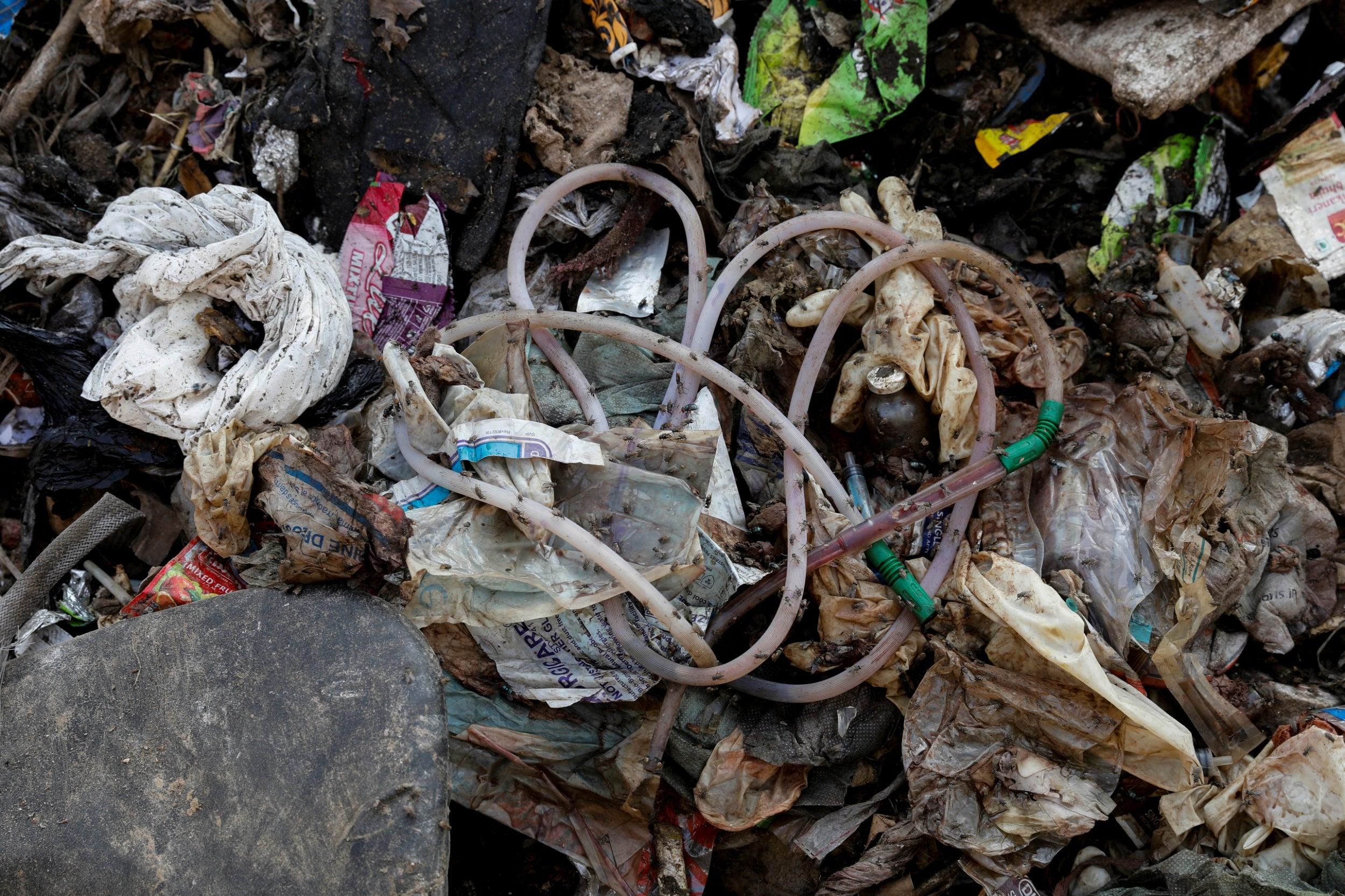
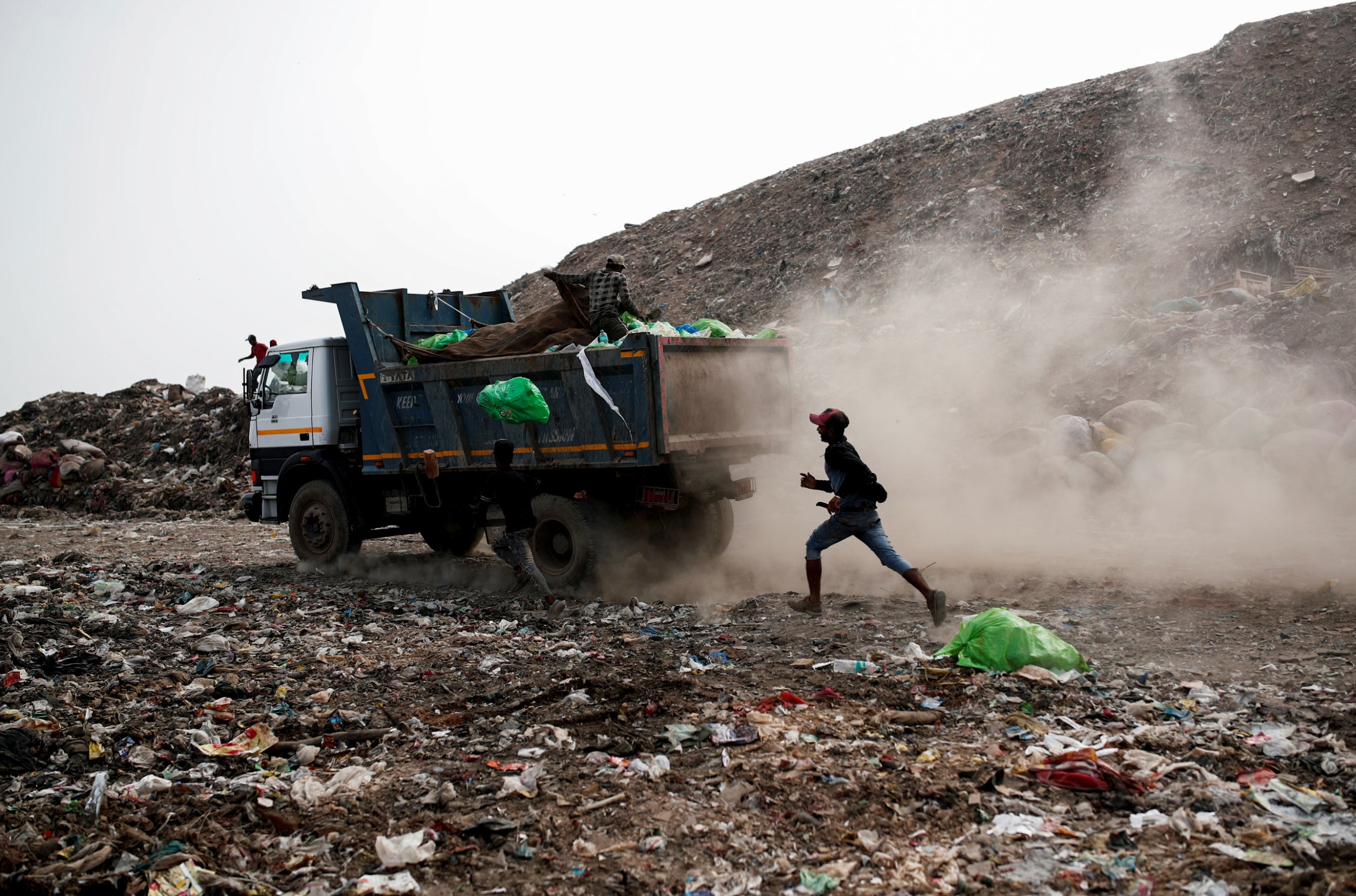
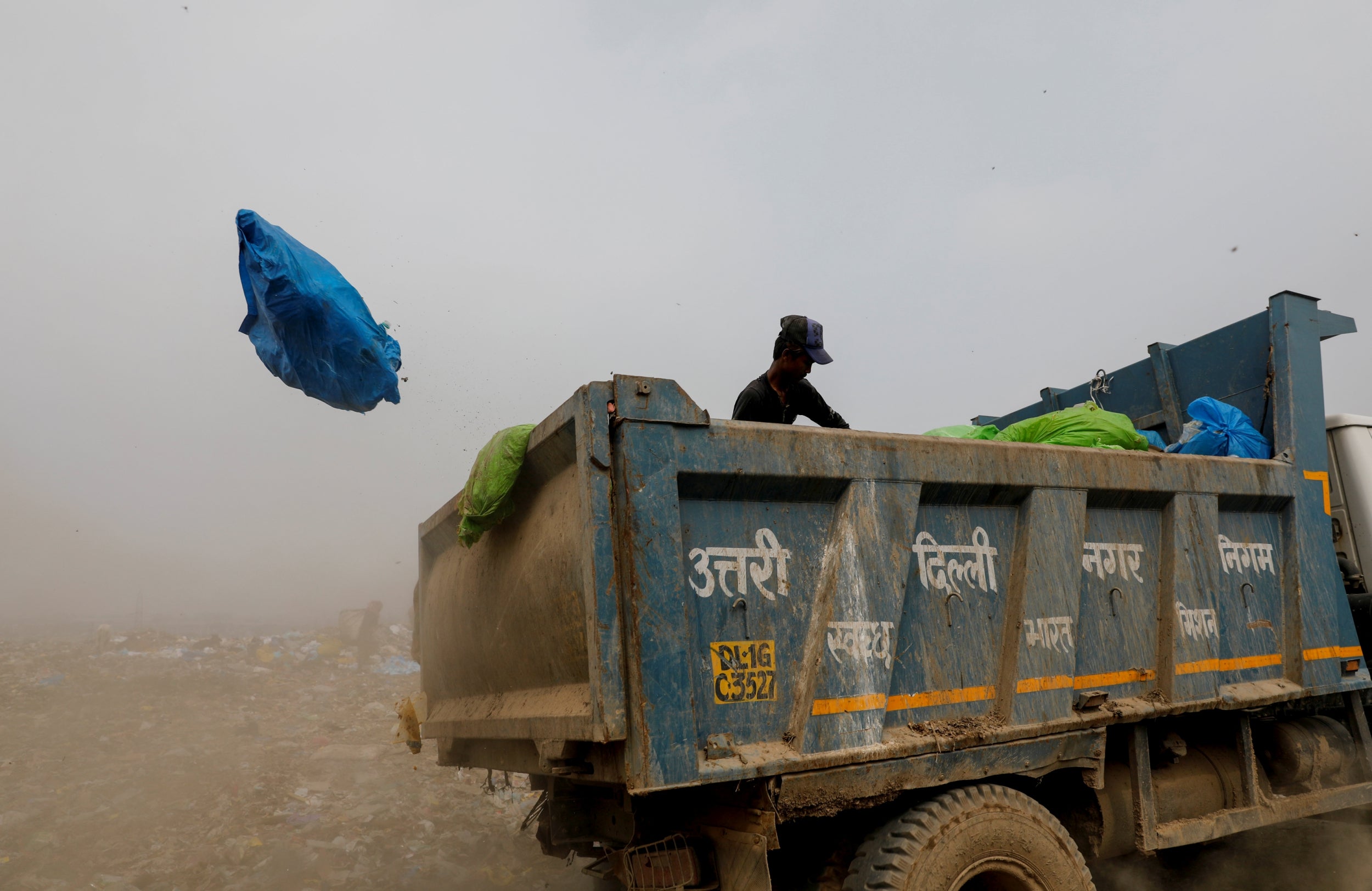
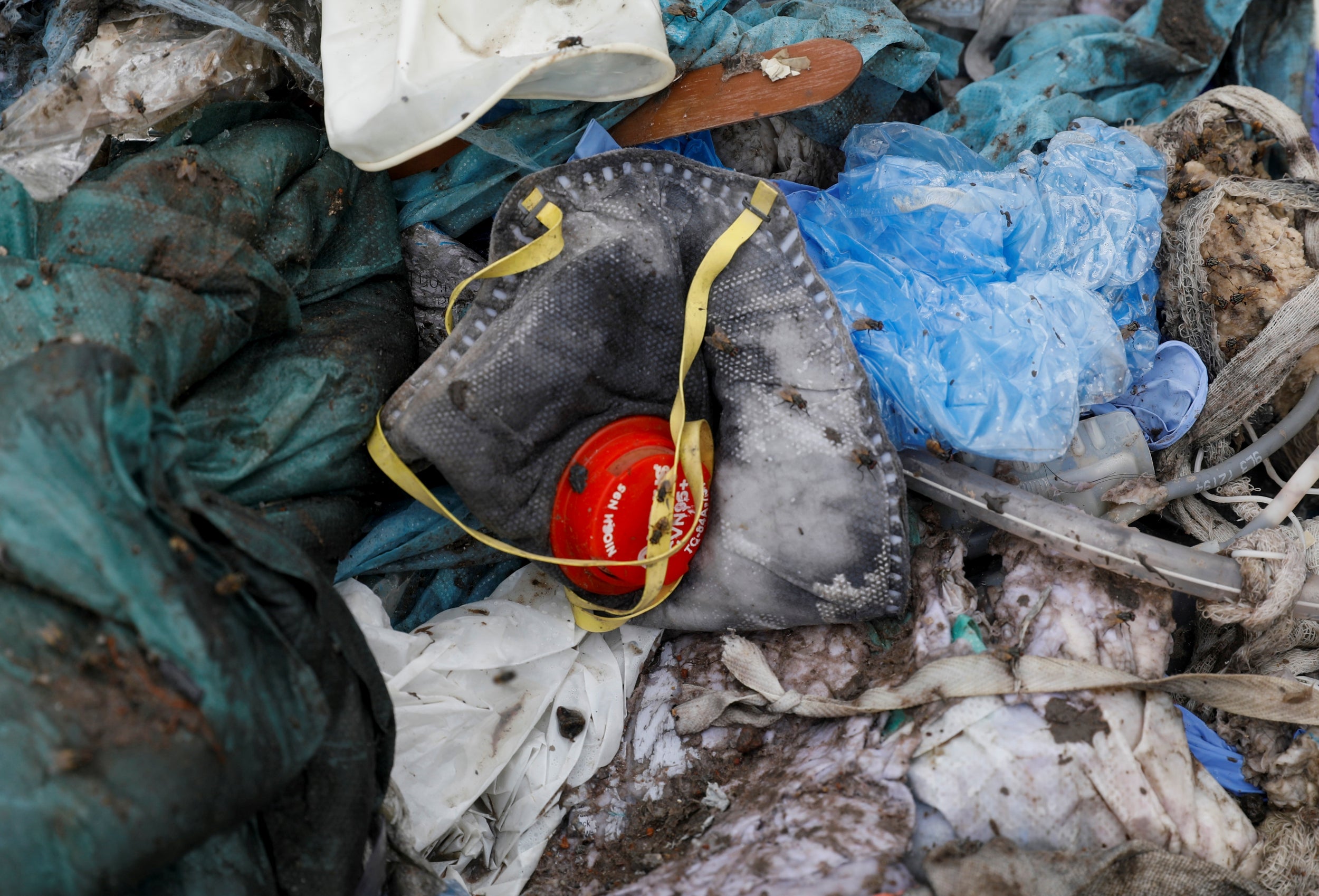
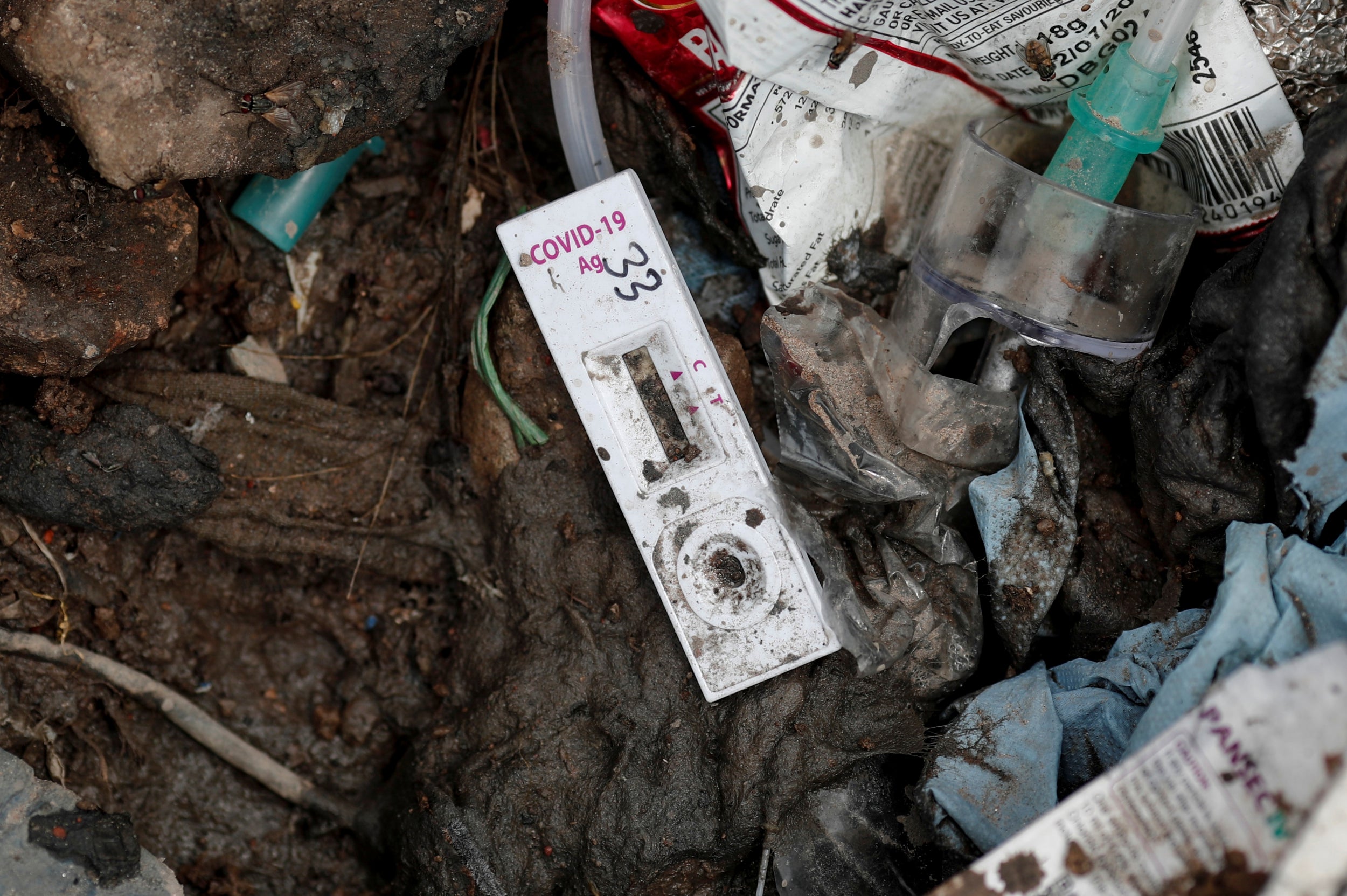
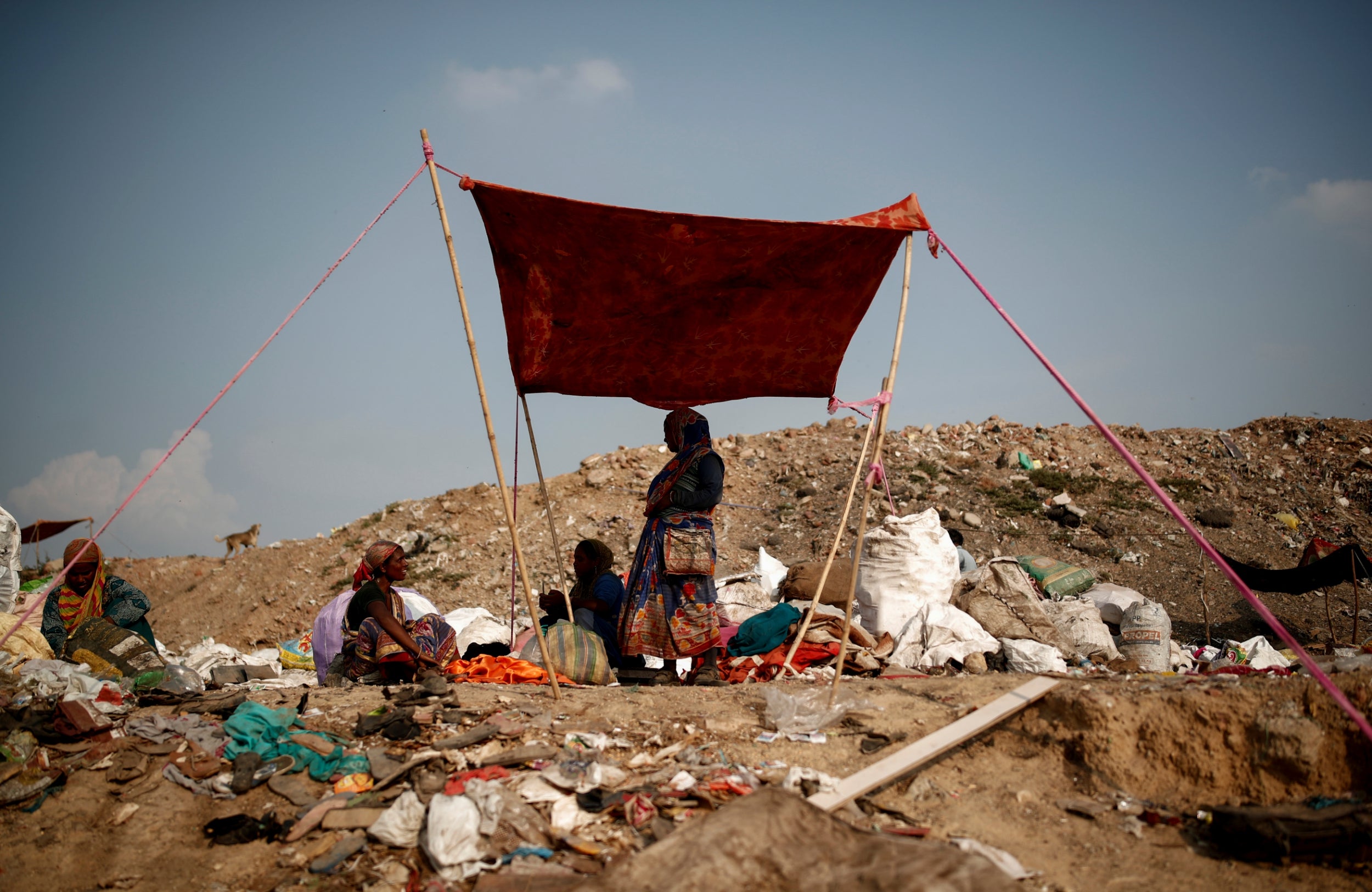
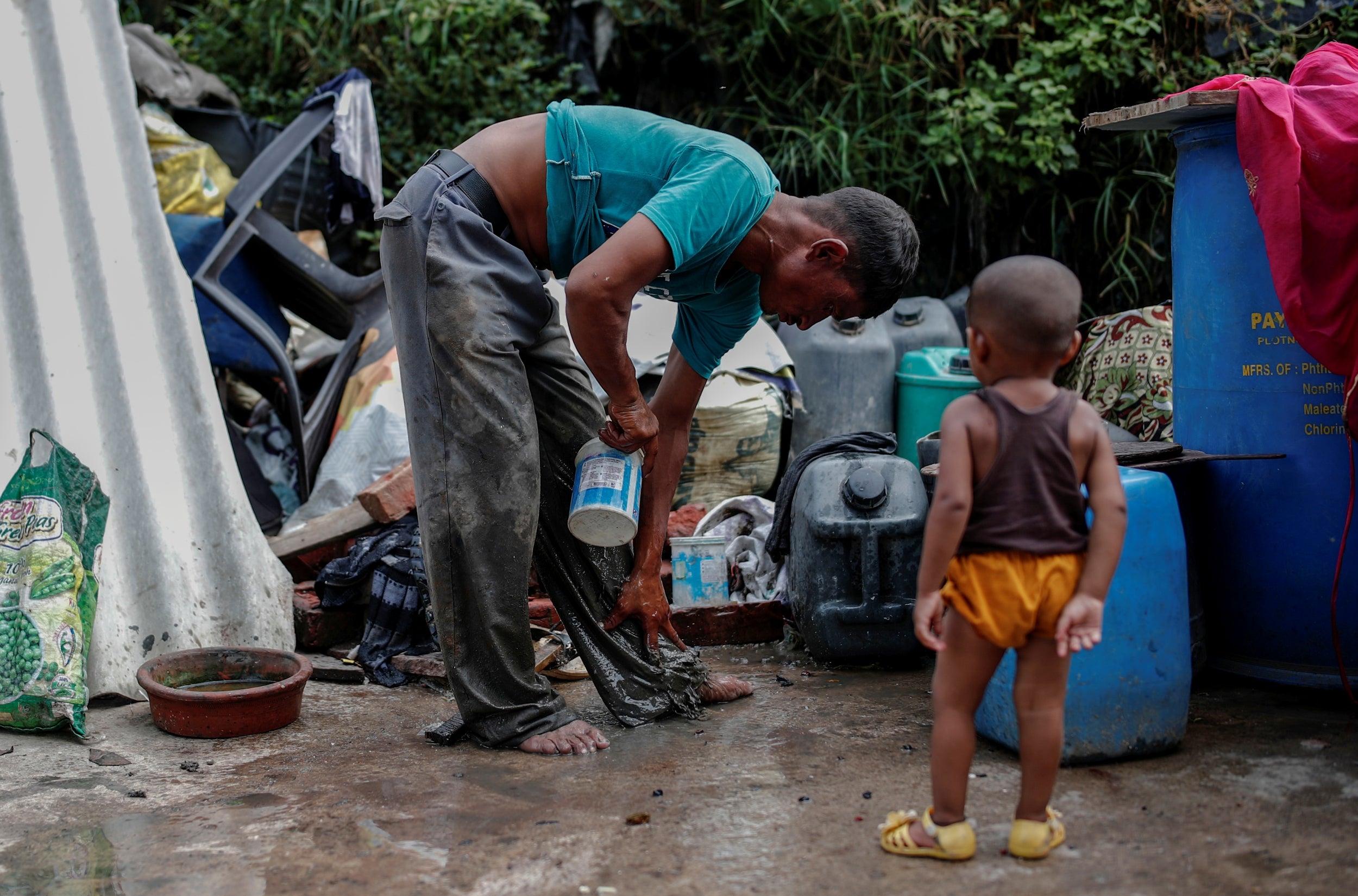
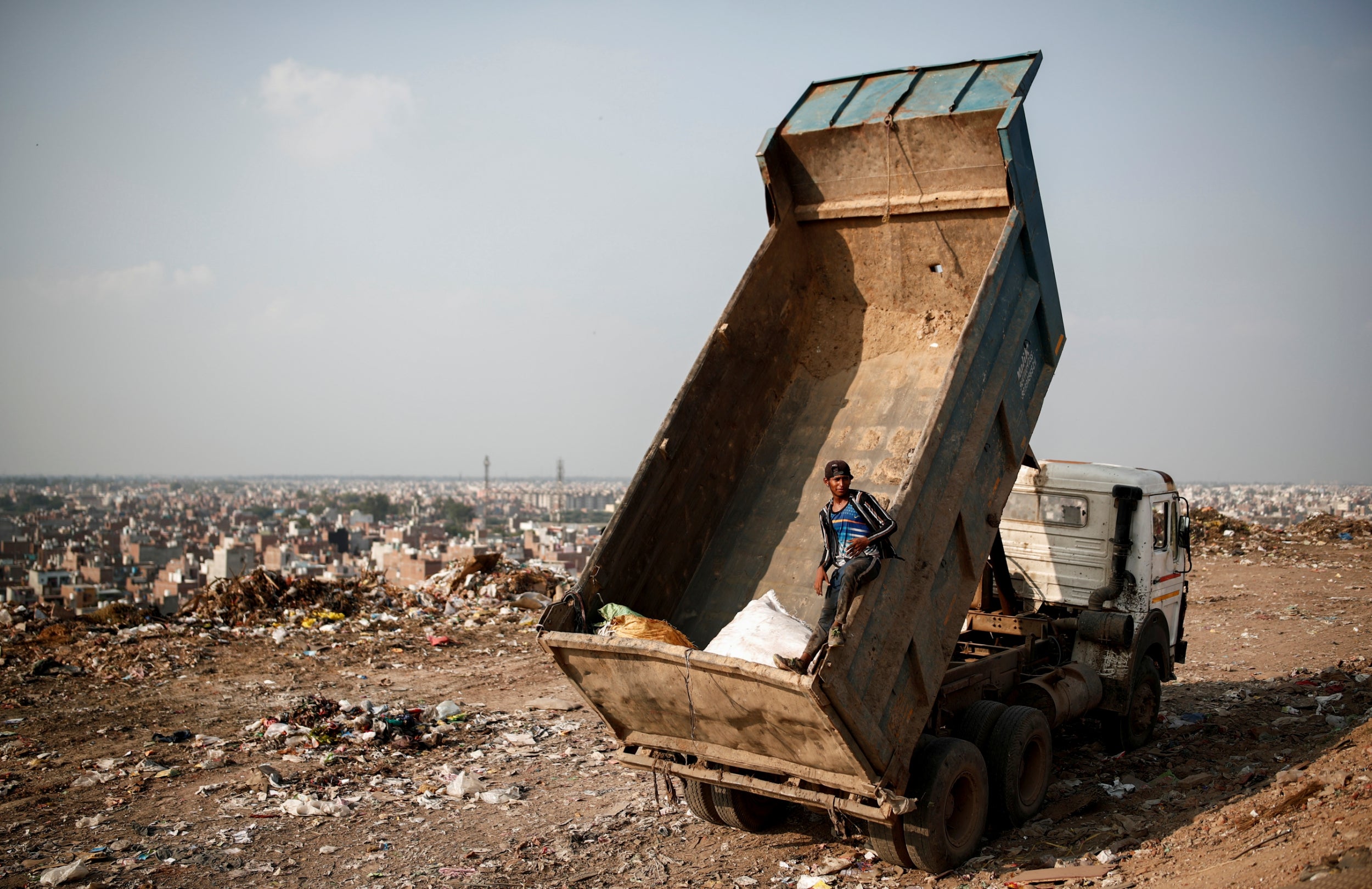
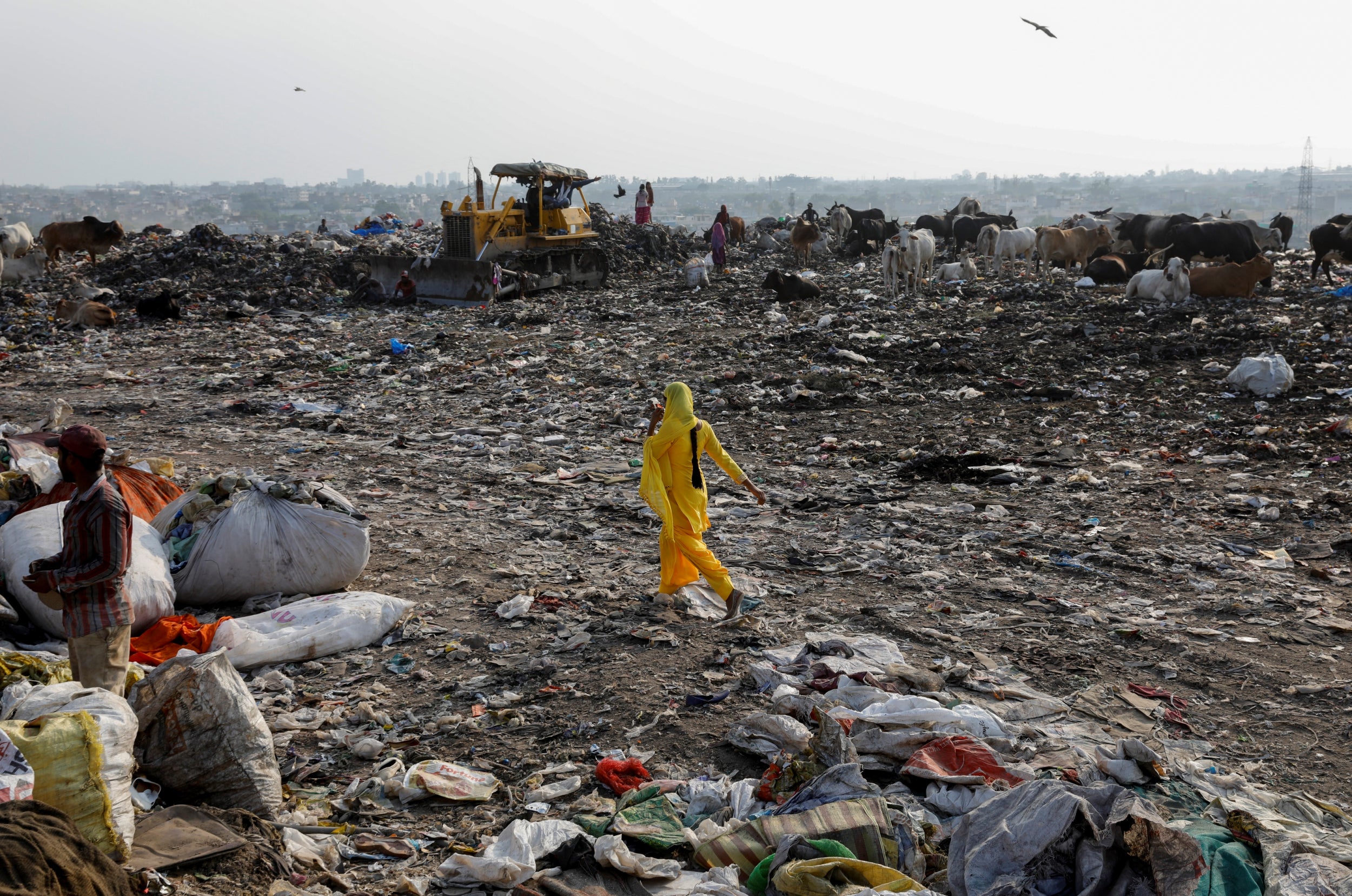
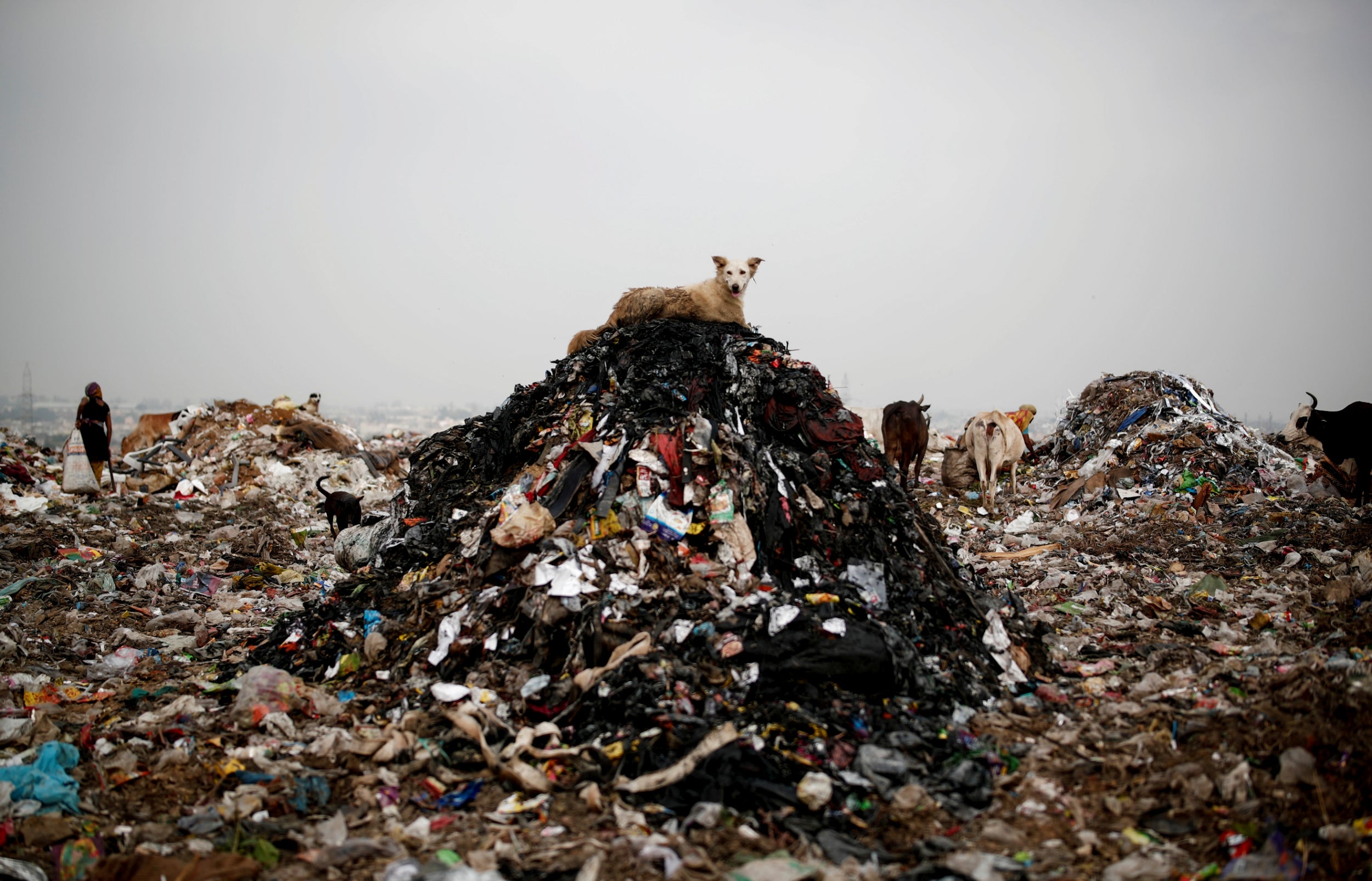
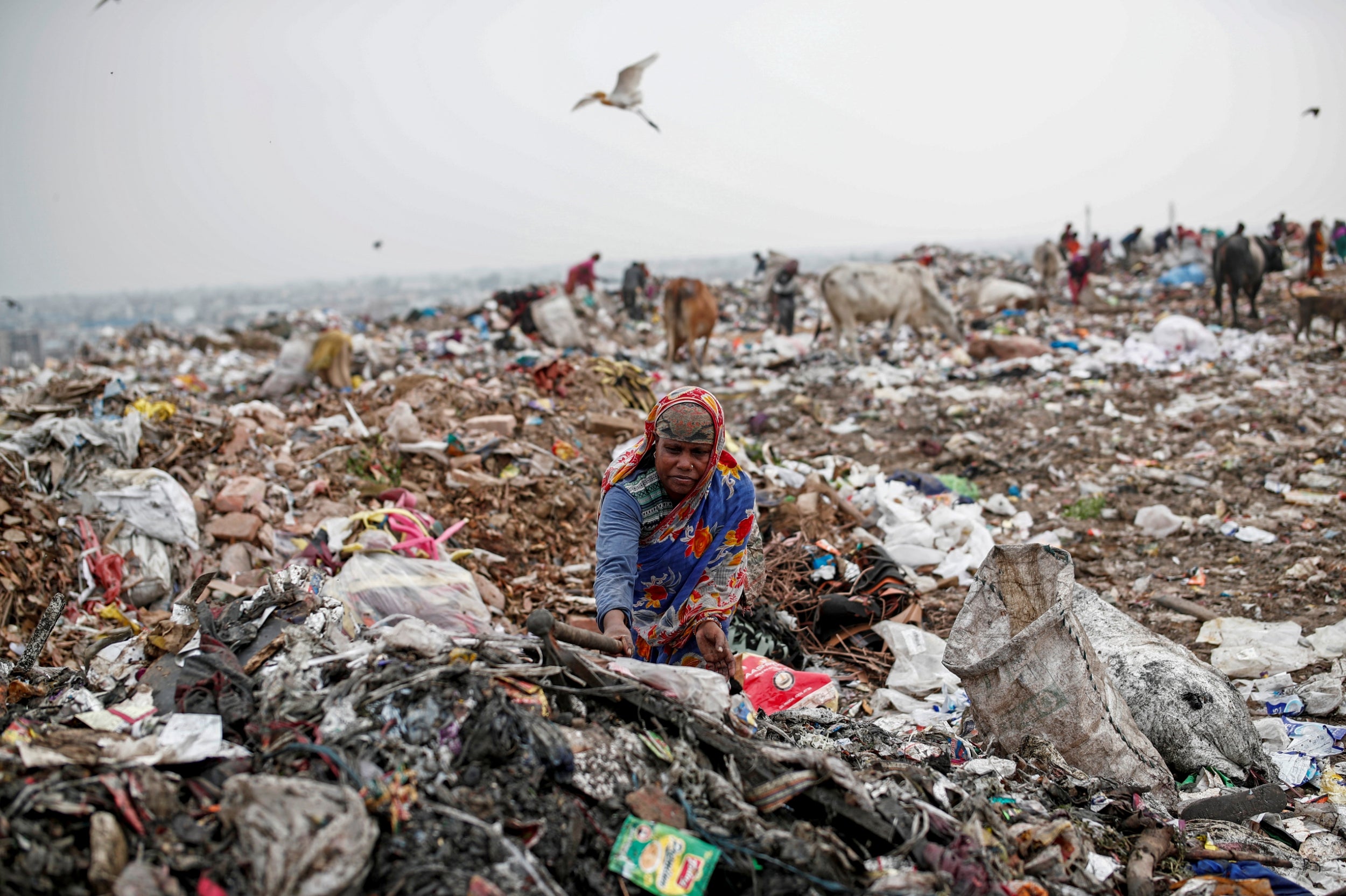
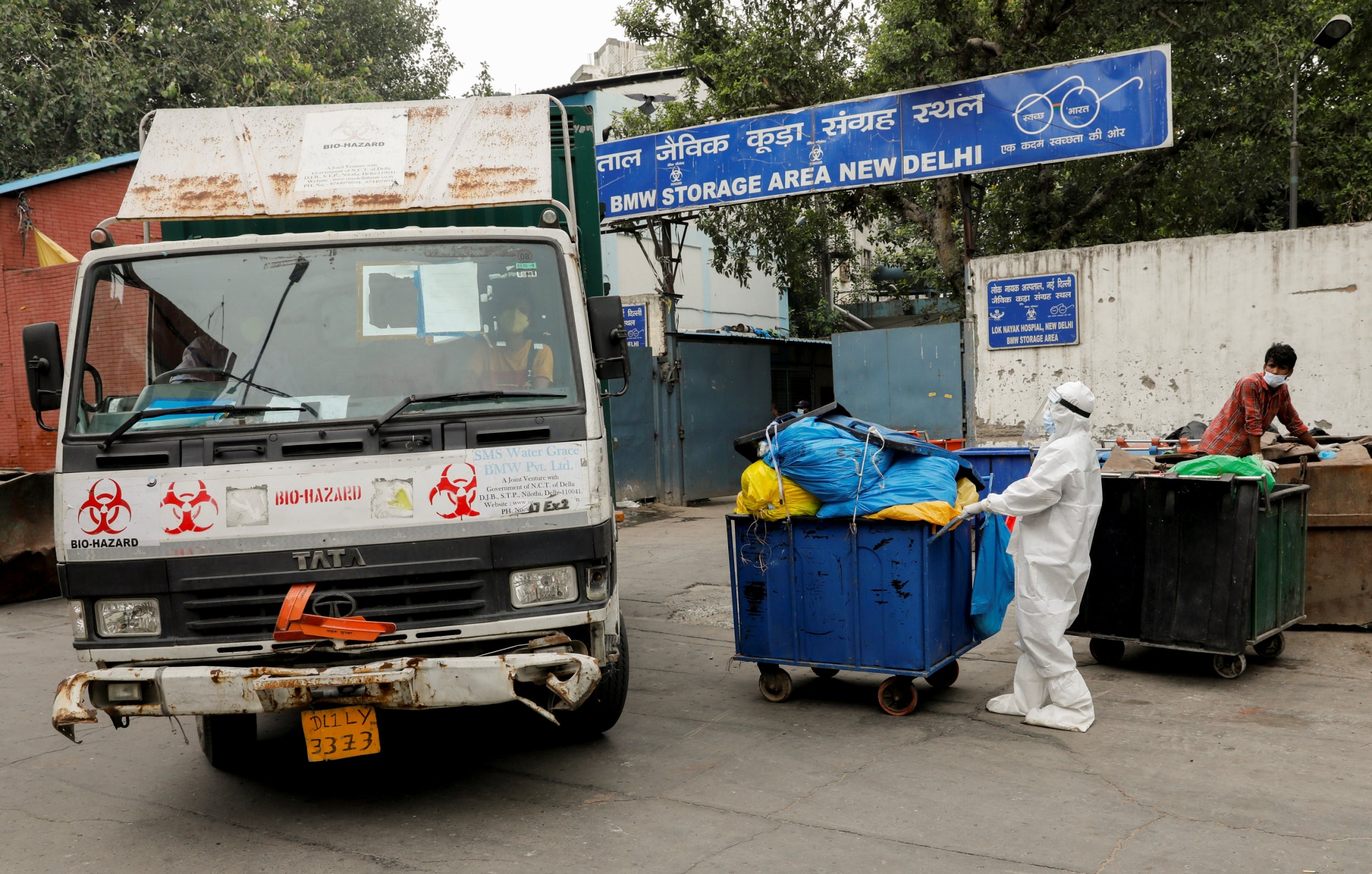
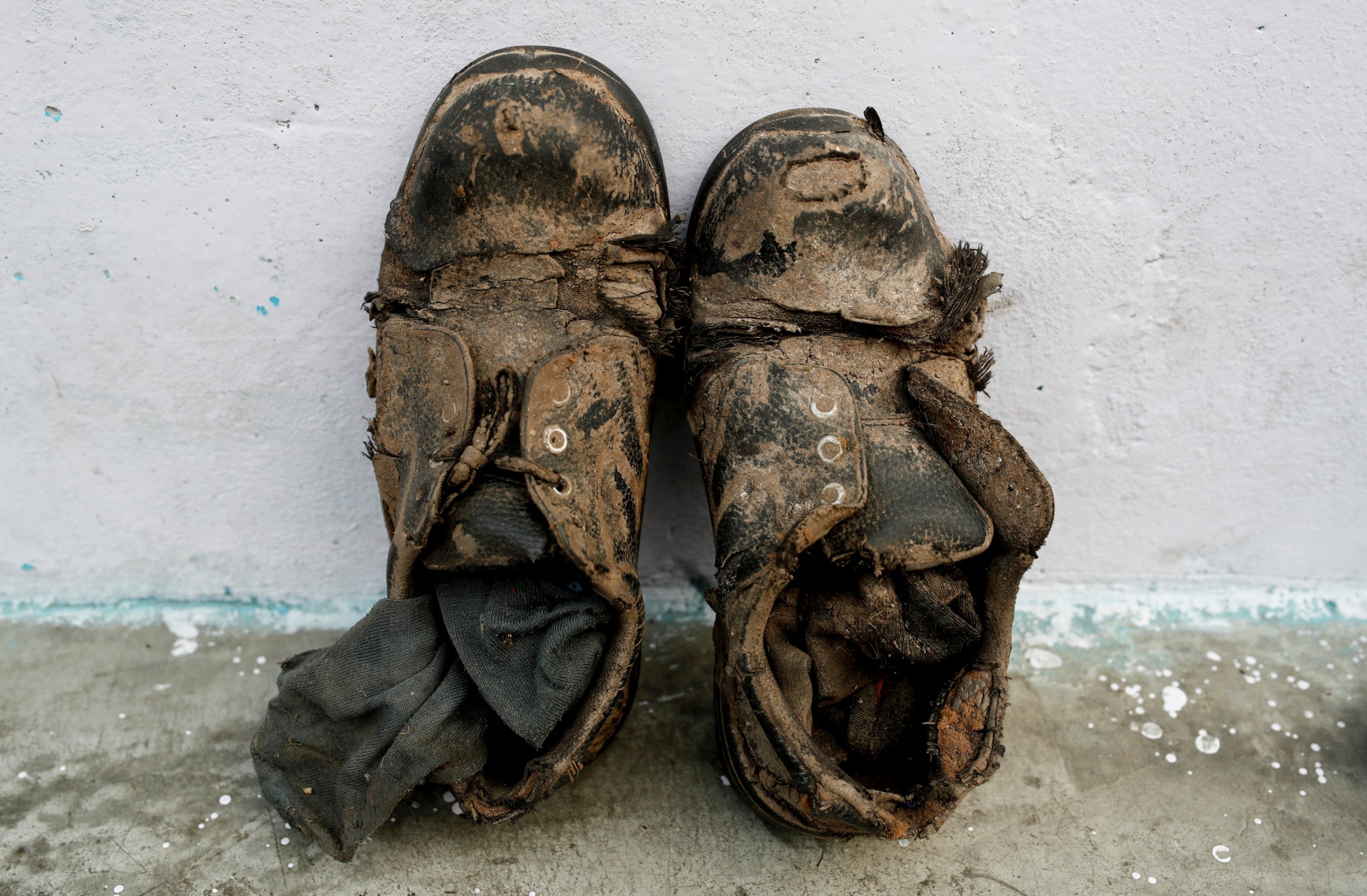
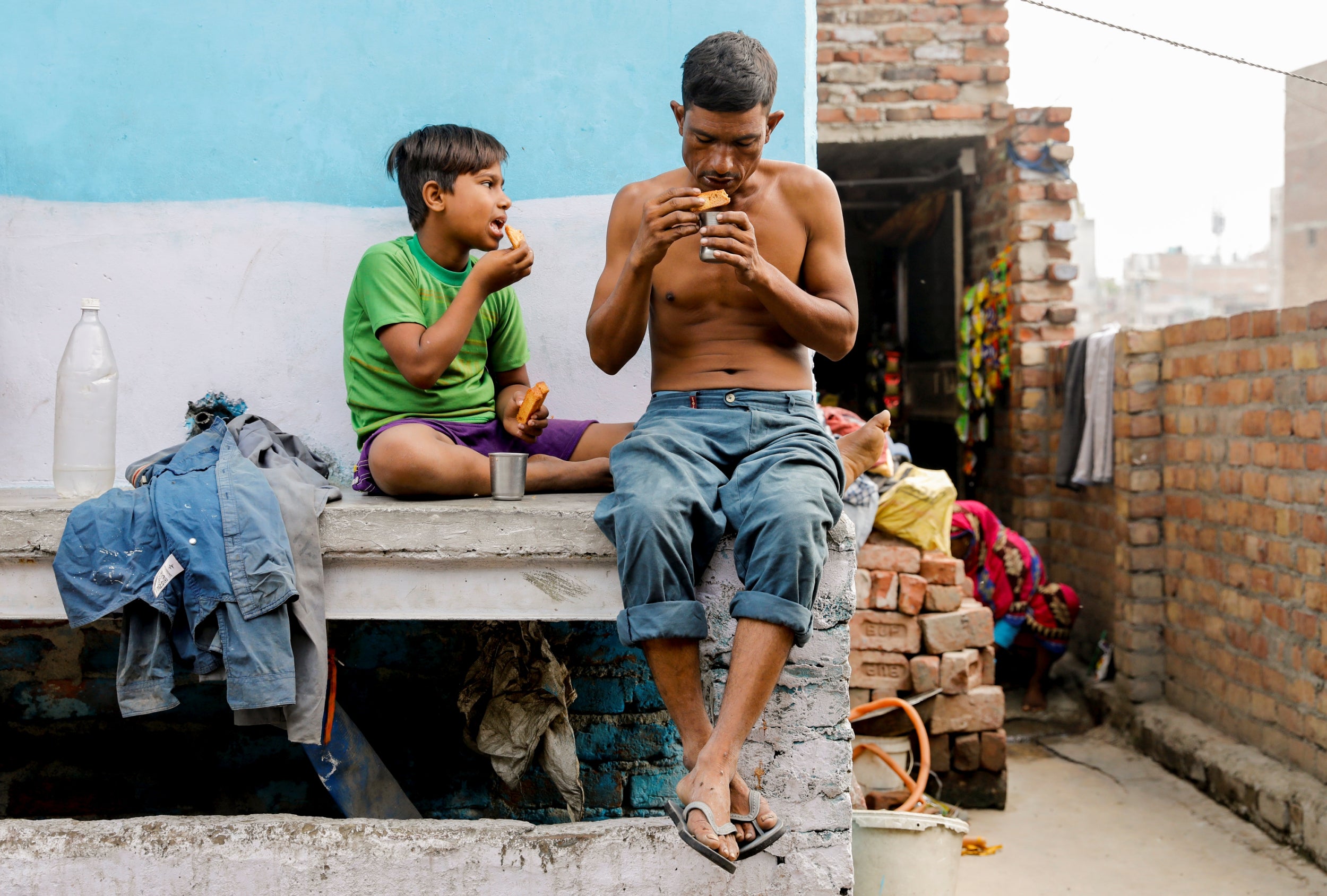
Join our commenting forum
Join thought-provoking conversations, follow other Independent readers and see their replies
Comments